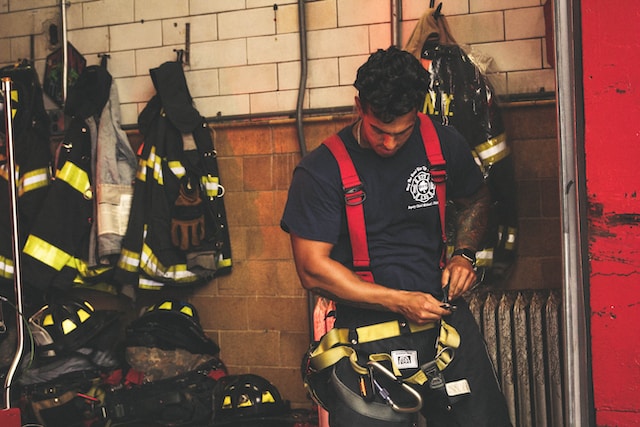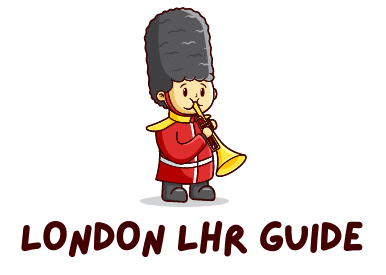Firefighters play an important role in keeping our society safe and minimizing the devastation caused by fires on people and property.
Firefighting is a tough and satisfying career since courage and dedication are crucial in emergency situations.
The potential pay is one factor that many aspiring firemen are interested in.
We will examine the criteria, such as cover requirements, licenses, education, and experience, that affect firefighters’ pay in London in this article.
Contents
Firefighter Coverage Requirements In London:
The amount of hours that firemen in London are required to be ready for duty is referred to as their “cover requirements.”
Firefighters operate in shifts, and these shifts can change based on the particular fire station and the needs of the operations.
They typically work four days followed by four days off. There are 42 hours of coverage every week under this rotation.
Salaries Based On Cover Requirements:
The salary structure for London firefighters is mostly based on the covers they meet.
Rank and years of service are used to break the basic pay scales into several increments. In London, a rookie fireman might expect to make around £24,000 per year as of 2021.
As firemen advance in rank and gain experience, this sum gradually rises. The top-paid policemen can make more than £70,000 a year.
Licenses And Qualifications:
Firefighters in London are expected to hold particular certifications and credentials to guarantee they are adequately prepared to handle a variety of emergency scenarios.

The Fireman Foundation Skills qualification, which offers the fundamental abilities and information needed to function as a fireman, is the most important credential.
To improve their talents and advance their careers, additional certifications in areas like First Aid, Driver Training, and Breathing Apparatus are also required.
We have mentioned a general summary of how licenses and credentials can affect firefighters’ salaries, while precise wage estimates may vary across locations and departments.
- Basic Firefighter Certification:
For those looking to enter the firefighting industry, obtaining a basic firefighter certification is usually the first step.
For this certification, you must finish the necessary training courses and adhere to the minimum requirements established by the responsible firefighting authority or agency.
The fundamental expertise and knowledge required to carry out firefighting tasks successfully are provided by basic firefighter certificates. However, they often have little effect on pay above the entry-level wage.
- Emergency Medical Technician (EMT) Certification:
Many firemen also possess emergency medical technician (EMT) certificates, which allow them to offer fundamental medical aid at emergency scenes.
Before more experienced medical staff arrive, EMTs can evaluate patients, perform CPR, manage bleeding, and stabilize patients.
Due to the added responsibilities and abilities they bring to the position, firefighters with EMT credentials frequently make more money.
- Advanced Life Support (ALS) Certification:
Some firemen pursue additional education and certification in order to become paramedics or hold Advanced Life Support (ALS) certificates.
The ability to dispense medication, carry out complex treatments, and manage critically ill patients is made possible by these certifications for firemen.
Because of the additional training and obligations they have, firefighters with ALS certifications typically make more money than those with standard EMT certifications.
- Specialized Certifications:
Firefighters can also pursue specific certificates in a variety of fields related to putting out fires, such as handling hazardous materials, technical rescue, putting out wildfires, or fire investigation.
These credentials call for further education and experience, which is frequently acquired through specialized training and practical work.
Due to the superior skills and knowledge they offer to their respective professions, firefighters with specialized certificates may be eligible for better pay grades or receive additional remuneration.
- Officer Ranks and Qualifications:
There are a number of ranks and posts with varying levels of power and responsibility within firefighting agencies.

Firefighters who advance to officer roles like lieutenants, captains, or chiefs typically earn more money.
These positions frequently call for further training in leadership and management, certification in incident command, and specific knowledge of fire department administration.
Education And Training:
While academic credentials are not a requirement to work as a firefighter in London, they are typically expected.
Since these topics give a strong foundation for the technical components of the profession, many firemen hold GCSEs or A-levels in subjects including mathematics, English, and physics.
Although experience, abilities, and on-the-job training are valued in the field of firefighting, it is also possible to get the necessary credentials through the London Fire Brigade’s vocational courses and training programs.
Experience And Progression:
Firefighter pay in London is heavily influenced by experience.
Leading Firefighters, Crew Managers, Watch Managers, Station Managers, and other ranks are among the many ranks that firefighters can advance to.
Firefighters’ salaries rise in line with their level of experience and promotion.
They can also pursue specialized training in fields including hazardous materials, technical rescue, and incident leadership, which can result in higher pay and prospects for professional promotion.
Additional Factors Influencing Salaries:
The wages of firemen in London may be influenced by a number of additional factors. These consist of bonuses, shift allowances, and overtime compensation.
To make up for staff shortfalls and increased operational needs, firefighters frequently put in extra time. Since overtime work is typically paid at a greater rate, overall earnings rise.

Additionally, shift payments may be made for working unsociable hours, such as nights or weekends. Additionally, bonuses may be given for outstanding performance or unique abilities.
In conclusion, a number of variables, such as cover requirements, licenses, education, and experience, affect the pay of firefighters in London.
Firefighters’ starting pay is often small but rises as they gain experience and move up the ranks. Licenses, certifications, and ongoing training are necessary for career advancement and increased pay.
Firefighting is an appealing and financially viable career option for those who are passionate about helping the community and saving lives because of the devotion, bravery, and commitment shown by London’s firefighters.

